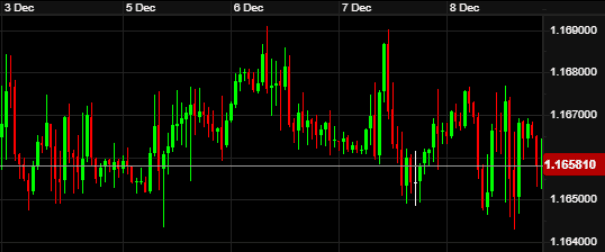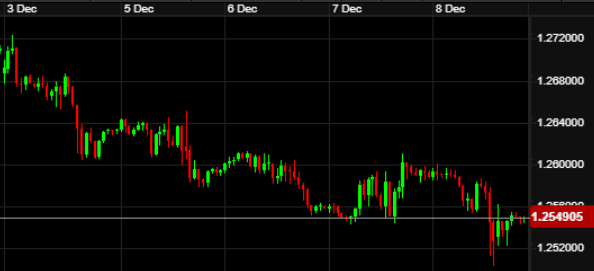ACM Update 11-12-23

European news has been the main headline-grabber in recent days as we run towards Christmas. The European Central Bank seem to have inflation flying downwards, leading markets to believe that Lagarde & Co will be cutting interest rates in Q1.
In the UK, we saw Andrew Bailey speaking regarding the latest Financial Stability Report. The week ahead is filled with central bank meetings from the US, UK and Europe, as well as plenty of other significant data releases.
Aston Christmas Opening Hours:
As always, our offices will be closed for the three UK public holidays over the festive period on the 25th & 26th December & 1st January.
25th December – CLOSED
26th December – CLOSED
27th December – Open as Usual
28th December – Open as Usual
29th December – Open as Usual
1st January 2024 – CLOSED
2nd January 2024 – Open as Usual
Back to the present then and we had a busy week of mainly European-focussed news. The ECB are very much winning in their battle to squeeze inflation, despite being one of the very late adopters of the aggressive interest rate hiking cycle. But their policy seems to be working, with inflation down to 2.4% as of last month, just 0.4% above their target figure.
This has led markets to bet on the fact that Frankfurt are now done with their rate hikes, and that interest rate cuts are on the horizon. Last week I wrote that there was a 50% chance of a hike by the end of Q1, which now seems to have jumped to 90% since. In fact, just a month ago there was no expectation of this whatsoever.
Thus far this has all been market speculation, but last week saw Bank of France Governor, Francois Villeroy de Galhau, speaking on the matter. He firmly stated that the ECB had now finished raising interest rates and may look to cuts in 2024. His comments came in and interview with French newspaper La Depeche du Midi. Markets as a result are now pricing in five interest rate cuts during 2024.
Whilst it is excellent news that the European Central Bank have inflation under control, that same fact is having a weakening effect on the Euro itself. Lower interest rates lead to lower yileds for those investing in the single currency, lower yields lead to less demand, and thus the EUR is on the back foot in recent days. The ECB will now look towards economic growth to fuel the currency.
President Lagarde meanwhile still believes that even talking about rate cuts is “premature”. She spoke (albeit virtually due to a positive COVID test) at a Paris summit last week and continued to press home that belief. Her focus is currently on the second-round effects of inflation such as recent pay rises. With the latest ECB meeting later this week, it will be interesting to see what is said of the situation.
Outside of speeches, there was a raft of Eurozone data last week. EU-wide Services PMI figures came in above forecast at 48.7, whilst Retail Sales for the bloc showed a month on month growth of 0.1% from September to October. This far from impressive figure is in fact the first time the statistic has been positive since the data for the month of February.
Elsewhere, German factory orders took another dive in October too, with figures showing a -3.7% drop, having been expecting a positive print. Meanwhile the revised GDP figure for the union as a whole saw a shrinking of -0.1% for Q3 compared to Q2. This release has been bouncing fractionally either side of zero for 12 months now.
Overall then, not a good week for the Euro against the Dollar, but incredibly stable versus the Pound, with the pair managing just 0.42% of movement all week. The Chart for GBP-EUR can be seen below:

In the UK, activity was somewhat quieter than the previous week. The lead up to an interest rate meeting can often be this way, very much a “wait and see” mode scenario. Bank of England policymaker Swati Dhingra held a speech, but not directly related to interest rates. The economist stated that Britain should be doing more to tweak its trade policies with the EU to boost growth. This is a similar call to many other leading economists recently.
Perhaps the biggest UK release was the latest Financial Stability Report, which maintained that the growth outlook for the UK and Worldwide remains “subdued”. However, the report believes that UK households are “coping well” with higher borrowing costs. They reaffirmed that there is not a current expectation for further interest rate hikes, but that rates will remain high for some time to ensure inflation continues to fall. As has been the case, further rate hikes were not totally ruled out.
The UK Services PMI numbers nudged back into expansion territory at 50.9 in November, just above the estimate. This is the first expansionary figure for the metric since July’s equivalent. In terms of Retail Sales, the latest British Retail Consortium figure showed an increase of 2.6% in like for like spending in November, when compared to the same month last year.
Overall, a static week for GBP versus the Euro, but the Dollar moves caused considerable change on GBP-USD. With the pound having achieved gains of over 4% versus the Dollar in November, we saw a swing back the other way to start off December. This move was largely due to the triangle that is EUR-USD-GBP, with the Euro having a bad week and thus driving Dollar strength.
The usual round of Non-Farm Payrolls data landed on Friday afternoon, with the US adding 199,000 jobs to its economy last month, versus an expectation of 184,000. The print did cause an initial jump, but things soon settled back down afterwards. This was likely a relief to many markets after the figure came in under expectations last month. Seemingly the Black Friday bubble hasn’t burst yet.
Released in tandem with the above was the latest US Unemployment number, with the metric coming back down to 3.7% compared to 3.9% last month. Again, another sign of a resilient US jobs market continued to rumble on. The JOLTS Job Openings number though (released on Tuesday) did show that there are less job openings than of late. This release was its lowest since May 2021.
Other than an expansionary print of 52.7 for the Services sector, that was about it for Dollar-based news last week. All eyes will be on the Federal Reserve meeting this week for clues as to 2024 monetary policy. Moves last week can be seen in the chart below:

Elsewhere, we saw a couple of interest rate holds from the Reserve Bank of Australia and Bank of Canada last week. The pair held their headline interest rates at 4.35% and 5.00% respectively, both very much as expected.
The next Bank of Japan interest rate meeting on the 19th December however could well see the end of their negative interest rate policy. Or at least, that is what markets are expecting.
The week ahead:
Monday – Reserve Bank of Australia Governor Bullock speech (22:20 UK time)
Tuesday – UK Unemployment Rate & Claimant Count (19:00), US CPI Inflation exp 3.1% (13:30)
Wednesday – UK GDP m/m exp -0.1% (07:00), US PPI inflation (13:30), Federal Reserve Rate Announcement (19:00) & Jerome Powell press Conference (19:30)
Thursday – Swiss National Bank Rate Announcement (08:30) & Press Conference (09:00), Bank of England Rate Announcement (12:00), ECB Rate Announcement (13:15) & Press Conference (13:45)
Friday – FRA/GER/EU/UK/US Manufacturing & Services PMI data (08:15-14:45)
So as seen above, a busy week full of economic releases in what is usually viewed as the last “full trading week” before Christmas. With rate announcements from the Federal Reserve, Bank of England and European Central Bank all expected to see a hold in their respective policies, the accompanying press conferences will be the ones to watch.
Powell, Bailey and Lagarde respectively will all have to choose their wording carefully if they want to avoid giving markets the wrong idea on their ongoing intentions. We would expect a lot of these decisions to be “data driven”, but given the ECB are already close to their own benchmark target, the data will indeed be crucial.
Going into the festive period, the Aston offices will still be open as illustrated above, so make sure to reach out to the team with any queries you may have about upcoming payments. This can be a volatile time due to lower trading volumes, but this week should remain buoyant.
Have a great week and if we don’t speak before, the Aston team wishes you a great Christmas.